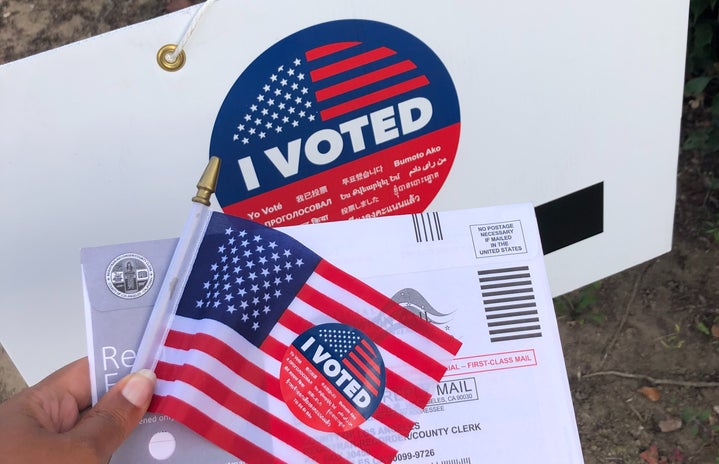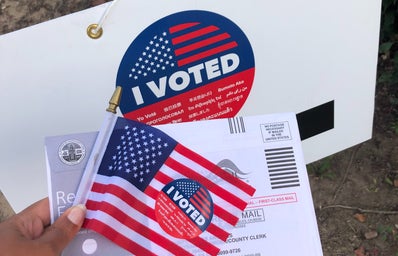TV commercials, roadway signs and social media posts – it is autumn once again, and this means information is flooding the news about the candidates running for the upcoming elections. Students say it is difficult to sift through the information and be expected to make an educated decision for a certain candidate.
In the past, 18-24-year-olds were the age group that was least interested and involved in voting, but that is beginning to change in recent years. In an article by the Washington Post, statistics show that the percentage of college students who are registered to vote and actively casting their votes has jumped from 19% in 2014 to 66% in 2020.
East Lansing City Clerk Jennifer Shuster said that one of the best ways to get students actively participating in elections is to hold in-class voter registration presentations. These events not only stir interest in voting, but they also cultivate environments where students can learn and ask questions.
“I know many students are very engaged in elections because of not only the candidates, but the proposals that are on the ballot,” said Shuster.
A majority of students agreed that when they feel involved and like they have a say in the direction of politics, they are more likely to cast their votes.
“We were given the choice. We were given the opportunity as citizens to elect officials that represent the people, and I think it’s important to act upon that select duty,” said Charlotte Bongratz, a Michigan State University (MSU) student.
While students recognize the importance of voting, they are wary of how their peers would react to their political views. Samuel J. Abrams wrote in an article for AEI that over 60% of students are worried about their reputations being damaged as a result of being misunderstood for a political statement; this includes students of all political backgrounds.
“I’m not going to not be friends with someone just because of their views, but if they have opinions that are directly against my core beliefs, it’s going to affect how I see them,” said Bongratz.
Abrams goes as far as to say that the very idea of free speech is being threatened, and when students are fearful for their friendships and reputations, they silence their own voices. Cancel culture is a very real and present issue that presses on students of all political affiliations.
For some students, their feelings of duty and responsibility outweigh the fear they feel. Students who have transferred to MSU say that if their home state is a battleground state, they want to remain registered there. These students feel their vote in a swing state would be more impactful than if they voted in a state that traditionally stays fixed to one side.
“If they want to stay registered to vote back home, they can get their local clerk to mail them an absentee ballot to them right here at school so they don’t have to make the trek back home on Election Day to vote. They can still do that obviously, but it’s never been easier to vote,” said Shuster.
Emma Powell, a Michigan native, moved to Kentucky two years ago but returned to Michigan to attend MSU. She is still registered to vote in Kentucky and does not plan on changing her place of registration.
“My vote there is really important, considering it’s a really red state, and I’m voting the other direction,” said Powell.
Regardless of the political direction, students collectively agree about the importance of voting. They see how their voice directly impacts change, and they want to be involved in the change moving forward.
Sources:
https://www.aei.org/articles/even-liberal-students-are-afraid-to-speak/


